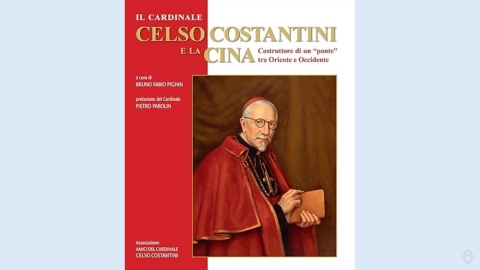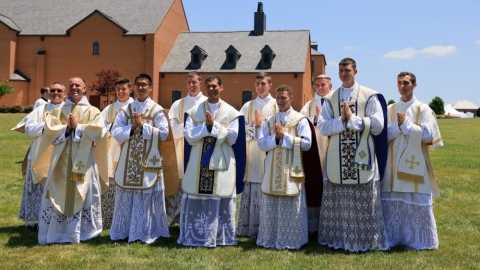Young People, Religion, and Secularism: A Telling Survey

Religion rarely has a place, other than a marginal one, in the lives of a majority of French young people: this is one of numerous lessons from the survey published by Kantar on November 30, 2023, with a representative sample of 1,000 young people 18 to 30 years old.
“The 21st century will be spiritual, or it will not be,” wrote André Malraux. It is not a religious century in any case, according to the latest opinion survey carried out by Kantar (Kantar Group and Affiliates) and presented in the columns of Le Monde.
It is a survey which aims to evaluate the relationship between so-called “globalized” young people and “tolerance of diversity”: with an underlying idea of putting an end to this “French-style secularism” that an ever-growing Muslim community in France struggles with.
The first lesson of the Kantar survey is that 52% of young people asked claim not to belong to any religion, 18% say they are Catholic, and 12% say they are Muslim. For the majority of them, religion occupies an unimportant place or has no place whatsoever in their personal lives.
Nevertheless, for a third of them, religion occupies an important place in their lives, notably among Catholics (53%) and even more among Muslims (85%). Secularization therefore affects young Catholics more, which is not surprising, because this scourge of post-modern societies is often the consequence of an abandonment of traditions and therefore of convictions on the part of previous generations.
A Vague and Disparate Idea of Secularism
The Kantar survey also contains a certain number of biases indicative of the progressive paradigm. 89% of young people claim to know the term “secularism” well, but looking closely at their responses, we can doubt that, unless the survey seeks to make them say something else.
The principle of secularism would be, for 29%, “to put all religions on equal footing”; for 27%, “citizens’ freedom of conscience”; for 22%, “to separate religions from the political sphere and the State”; and for 15%, “to reduce the influence of religions.” It is rather a “secularism of openness”—or of entryism?—going through equality between religions, which the survey intends to highlight.
Because, beyond this idea of “putting all religions on an equal footing,” the question concerns something other than secularism: namely, the State’s recognition of religious communitarianism very often stemming from immigration—in other words, the desperate choice of multiculturalism which has already shown its limits.
From this same perspective, we will not be surprised that 44% of young people are in favor of wearing religious symbols—such as the Islamic hijab—28% are opposed to it; but, most importantly, 25% are neither in favor nor opposed to it.
Here is another interesting figure: for a majority of French young people (60%), secularism is exploited by certain politicians and journalists who wish to denigrate Muslims. This is particularly the case for young Muslims (87%). The cliché of Islamo-leftism—defense of minorities, ending borders, openness to immigration, radical ecology—chanted by some progressive media outlets, has visibly borne fruit in public opinion.
More than ever, Jérôme Fourquet’s thesis in L’Archipel français [The French Archipelago] (Seuil, 2019) rings true: “The progressive erasure of the old France under pressure from the new France induces an effect of ‘archipelization’ of the whole society: secession of elites, empowerment of popular categories, formation of a Catholic community, installation of a de facto multicultural society, dislocation of common cultural references (as illustrated, for example, by the remarkable diversification in first names).”
It is time that the bishops and the Catholic elite realize the situation, and stop thinking of the current world according to outdated categories which triumphed at Vatican II and in the post-council years, those of the “quinze piteuses”—the 15 years from 1960 to 1975, according to the regretful expression of Patrick Buisson—disappeared on December 26, surgically described and denounced in his last book Décadanse [Decadance] (Albin Michel, 2023).
(Sources : Kantar/Atlantico – FSSPX.Actualités)
Illustration : Photo 274029035 © Chernetskaya | Dreamstime.com





